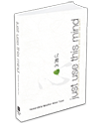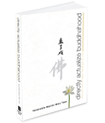Zen in the Modern Life

The practice of Zen emphasizes Mind. In Zen, we say every single person possesses Mind. Mind somehow can generate all kinds of thoughts. Mind manifests our own reality. It is a concept of Zen that Mind is the source of life. In Buddhism, we have the Buddha, but the Buddha is not a creator. The Buddha is a teacher; the Buddha is a role model for us. This is quite different. We are learning from the Buddha. We are not trying to become Shakyamuni Buddha, the historical Buddha. We are trying to become our own Buddha. Every single person possesses Mind, but for each of us our mind has been deluded by self-attachment. What do I mean by “self-attachment”? This is a very important idea. The mind can generate thoughts. There are 6.7 billion people living in this world, and every single person’s mind can generate thoughts. Once you generate a thought, you attach that very moment to the thought. The thought is the only one you can recognize then. The moment when you are generating a thought, you allow yourself–you allow the thought–to occupy your mind. Thus the thought becomes the only one in that moment. For example, when you are generating a single angry thought, in that very moment you will think you are angry. However, you should remember that you are generating a single angry thought. This is fundamentally different. You are generating a single angry thought in that moment. You will assume that you are angry, but the angry thought is not your equal. You are much bigger than the thought. There are 6.7 billion people in this world, which means the mind can generate 6.7 billion thoughts. Moreover, the mind can generate more than 6.7 billion types of thoughts. But once we become attached to our own creations, the mind is not free. What do I mean by “our own creations”? They are our thoughts, feelings and emotions; they are who we think we are. Once we become attached, we have no choice. Our mind is not free, nor is our life free. That is what I mean by attachment. Every single person’s mind can generate thoughts. Every single person’s mind can manifest the reality corresponding to the thought that is generated. This is the fundamental concept. So, we are not trying to become the historical Shakamuni Buddha, who was born in India. We are trying to become our own Buddha. After we purify our own mind, we become a Buddha. Our mind is like a mirror covered in dust, but the Buddha’s mind is like a clear mirror. So, there is a saying, “The everyday person is a Buddha with all type of worries, but the Buddha is an everyday person without worries.” So, what makes us different from the Buddha? It is our mind, which has been deluded by our self-attachment; by our habitual thought patterns. That is the only difference.
The purpose of Zen practice is to become the master of one’s own mind and to understand how we can master the source of our life. First, we can think this way: What makes you a living being? You can think about this question. What is it that makes you a living being? We have feelings, we have emotions, and we have thoughts. Fundamentally, we have brain waves. If you go to a hospital and you do not have brain waves, it means you are dead. If you go to a hospital and they can register your brain waves on a machine, it means you are still alive. You are a so-called living being. Remember, the machine can only register your brain waves. Different thoughts generated by the mind will cause different types of brain waves, but the machine never can register the place where the thought comes from. In Zen we have the statement, “Every single person possesses Mind, which is formless and has no shape.” Mind can generate all kinds of thoughts. Different thoughts can cause different brainwaves. So, the thought itself is a type of energy. The thought is energy. In physics, energy cannot be divided. The thought is energy, the physical body is energy, the atmosphere is energy, and a table is energy. They are all energy. So, you can never divide the energy into pieces. The very moment your mind generates the thought, the reality that corresponds to the thought appears simultaneously. You can never separate yourself from your oneness. I will give you some examples to explain oneness. There is not just one oneness, because your mind is formless. Whatever your mind manifests, that is your oneness. Because the mind is formless, countless overlapping situations occur. Thus the formless overlaps the formless. Mind is formless, too. Your formless mind is not my formless mind, but your formless mind is also my formless mind. If you can say this is formless, then it is definitively no longer formless. So, your mind is formless and my mind is formless. The formless overlaps the formless. Our mind has the same quality and function. Your oneness is not my oneness, but the function of your oneness is absolutely the same as the oneness of my mind. Many practitioners have inaccurate concepts: that we are all and the only one. No! Not the only one. You can say the function is the one but separating the individual is different. For example, if I generate an angry thought, will you become angry too? You will not. Therefore, I have my mind, which works for me, and you have your mind, which works for you. However, our minds have the same function and ability.
I am talking to you now, and you are listening to me. All who are present can hear the sound. In this moment, every single person seated in the room can hear the sound. Immediately afterward, each of you will define my talk based on his or her own habitual thought patterns. However, at the very first moment this is my talk and every single person can hear my sound and voice. Right after you hear the voice and sound–from your perspective–you have a thought pattern in your mind. At this level, you can all hear the sound at this moment. Immediately after this moment, based on the habitual thought pattern in your mind, you will define my talk. This is your definition; that is your definition, and so on. Think about it. This is my talk, and that is your definition. Your definition is your answer. You are thinking about what I am saying at this moment. That is your answer, but your answer is not my talk. This causes many problems. It causes all types of wars. We talk about “every single person,” and this is what we call duality. Dualistic thinking causes all sorts of conflicts in this world. Let’s talk about one single self. I, for example, want to buy this, but I do not want to buy this. This is conflict. I love this person but I do not love this person anymore. This is conflict. This is in you, yourself. This is your husband or wife. I think this is right, but I think this is right. Of course, you fight each other all the time. This is one country, and this is another country. People in my country think this is right. Your people think that is right. So, there will be a war between two countries. Dualistic thinking causes all kinds of problems. Dualistic thinking causes the mind to become less flexible. We carry our own habitual thought patterns with us and try to use those patterns to handle all the things that happen in life. But, do you think everything in life can be handled by our own habitual patterns? If so, one would be like a sage. We are more than judges. Have we thought about the fact that we have many worries in life? We have different types of worries and suffering, but the way we talk to someone–the way we give advice to someone–is that we assume that we are like the sages. Even though we have many worries, when we talk to someone who encounters problems we often suggest that he or she should do this or that. But we still have our own problems. Your concepts create your own problems, so how can your concepts help someone to solve his problems?
This is the idea. We think that we are everyday people, but somehow our habitual patterns make us act like sages when we become attached to the thought patterns in our minds. We have no choice. What do I mean by saying we have no choice? This is very important, so please consider this very carefully. You are listening to me at this very moment, and the only thought that comes to mind is the only thought you can have right now. The thought is coming from your thought pattern; from your habitual pattern at this instant. You do not have a choice. Even if you were to have two choices, you would not necessarily be right. In every single moment, one will have a thought, but the only thought one can have is that one has to generate a thought according to a habitual pattern. However, the only thought that comes to mind will lead us to assume it is the right one. So, we fight for those thoughts. We lose our flexibility because our mind can generate all types of thoughts. I will give you an idea, and if you remember it and keep it in mind, you will find happiness. Thoughts are tools, feelings are tools, and emotions are tools. They are tools of the mind. Most of the time, we are not focused on the purpose. For example, you have fought with your husband or wife, and later tried to say something nice to him or her. A husband buys flowers for his wife and says nice words to her, but she does not buy that. What is the purpose? It is to make some compensation. According to one’s habitual pattern in mind, life is dominated by his/her habitual patterns. His or her attachments to habitual thinking make the person totally lose focus on what should be fixed. So, remember that thoughts are tools. You want to insist on your idea, or you want to fix it. Remember this: Do not hesitate to put down the wrong thoughts. Who can generate the thought? It is you. Who insists the thought? It is you. Who want to fix the relationship? It is you. Which one is more important? I think you probably realize what the answer is. Remember, thoughts are tools of the mind. I will give you a classic example. If you were a farmer, you would be accustomed to the use of an axe. You would think the axe was the most wonderful tool in the world. However, is the axe the proper tool to use when cultivating vegetables? It probably isn’t. But the axe has been in your mind for such a long time so that you will think it is a good tool to use. Our thought patterns–our habitual thoughts and habitual patterns–are already in our mind for a long time. So, once we have a situation we also have tools. The mind is formless and can generate a thought. The more you generate the same thought, the more powerful the thought will become. This is what I mean by habitual thinking. Unconsciously, we give power to our habitual thoughts. The thought so empowered is what we call the habitual thought. We are the person who generates the habitual thought. Later, the habit becomes second nature to us. We open a business, and we establish a company. You do everything by yourself, and gradually you make money. So, you hire a general manager. You give rights to the general manager, and eventually the general manager replaces you. Everyone is like that general manager. The general manager is similar to the habitual thought pattern in the mind. He starts out as one who in charge of your company, but the general manager is not the boss. Who is the boss? You are. What is the wrong boss? It is the habitual pattern in the mind. You have tools, but who creates the habitual thought patterns? It is none other than ourselves. We repeatedly give power to the same thoughts, and consequently we lose freedom. The practice of Zen simply teaches one how to master his or her own mind. In this world there is no one else who can generate a single thought for you. Students ask me, “How can Zen help us to manage our anger?” In return I tell the students, “Do not generate one single angry thought.” You are to be far away from the angry emotion. It is the only way. Remember this: When you are generating an angry thought, you are hurting your body. You are not only hurting yourself but are also hurting your relationship. From morning to evening, how many thoughts do we have? They are countless. Every single thought has the power to affect your physical body, affect your relationship and affect your reality. Unconsciously, we create negative karma. Unconsciously, we hurt our physical body; unconsciously we hurt our relationships. Unconsciously, every single thought has the power to affect our physical body. I used to tell students that treat themselves well. What do I mean by that? Consider this example: There is someone beside me. This is junk. I hate this person when I see him. Sigh . . . . This is junk. Who is this person? I do not even know the person. But, who is generating the thought at the moment? I am. I am creating the junk. What is the junk? It is me. I do not even know the person, but I have hatred against him. Remember, every single thought that occurs in your mind can affect you. You are the only person who can benefit from it, but you are also the person who will be hurt by the negative thought.
A story is told about a teacher who tells his students to put down their negative thoughts. The teacher taught in a school high in a remote area of the mountains. He did not have many students, but they always fought each other and had many complaints. One day, the teacher told his students that they would have games the next day, and the news was exciting to them. The next day, the teacher brought lots of potatoes and many bags to school. He gave a bag to each student and told them that, if they hated or disliked someone, to write the person’s name on a potato and place the potato in a bag. Then he reminded them that they would have to carry it every day. The students eager began to write names on potatoes and put them into their bags and carry them to school every day. A week later, the teacher asked his students, “What do you think? Do you think it is fun to carry bags of potatoes back and forth?” The students began to complain that it was a burden and too heavy to carry potatoes back and forth every day. The teacher started to say a wonderful sentence, “If it is a burden to you, why don’t you put it down? Why do you hesitate to put it down?” If we carry a lot of hatred or negative thoughts in mind, it is like a bag in the mind, carrying a load of junk.
A concept of Zen is that we define everything according to our habitual thought patterns. The definition already shows what kind of person you are. There is a famous Zen story, which goes like this: A renowned poet went out with his Zen master. When both sat in the same boat, the Zen master asked his poet student, “How do you like the view?” The student answered, “Yes, it is a wonderful view.” Then the student asked the Zen master, “What do I look like?” The Zen master replied, “You look like a Buddha.” The poet was very pleased and felt very happy. Later, the Zen master asked the student, “What do I look like?” The student answered, “You look like shit.” The student was so proud and though he had won over the Zen master. After he went back home, his family member told him that he had completely lost the game. It is because, no matter what you tell people, you only represent who you are. You are what you say to people. You told a person that he was like shit. It means there is a lot of shit in your mind. Remember, no matter what types of thoughts pop into your unique mind, you are the person who will harvest the results. So, treat yourself well. Be smart. This has nothing to do with scientists, nor has it anything to do with doctors. This is your own problem. We need to pay attention, because it is our life. A student might ask me, “How can I establish or build positive thought patterns?” There is no option in this regard. It is not an option to build a positive thought pattern. There is nowhere else you can go. Remember, every single thought will affect your physical body, your life and your relationships, so you have to build positive thought patterns. This is only way in life. It is not an option, so you have no other choice. You should realize that it is the reality and the truth. You, however, have the power and strength to accomplish this goal. You have the tools. Who wants to have happiness? You do. Who wants to have joy? You do. How can you create it? Think about this: You are the only one who can do so! If someone can replace you to do that, how can you have happiness? It is the person, not “you.: Every single person possesses a mind. Every single person’s mind can generate the thought, no matter what type of thought it is. The thought comes first, the action later and then the result. Who lives with the result? You do. So, it is not an option to build a positive thought pattern. When you realize that, you will have the strength to overcome the hindrances. If you think it is optional, you do not have the power to overcome the problem.
Consider the fact that each of us has different thoughts. For example, people often ask, “How can I handle my angry emotions?” At this very moment, when I generate a single angry thought, an angry thought is called forth. If my mind keeps generating an angry thought, followed by an angry thought and another angry thought, we call that an angry emotion. All types of emotions arise from a series of similar thoughts. Emotions are nothing but thoughts. Who can generate such thoughts? You can. Our habitual patterns dominate our lives. Different thoughts are like different doors in our lives. When we generate an angry thought, we open the door of anger.
We are all pursuing happiness in this world. You may want something happen to you or you may not want something happen to you, but this is not an issue. The real issue is whether you make it happen or not. If you can, you can enjoy it. If you cannot, even though you want, there is nothing you can do with it. Make yourself be capable of doing something, and you will enjoy that. If you do not have the ability, despite your desire, it is only a dream. It is only a thought, so how can you accomplish it? Life has nothing to do with whether you want something to happen or do not want something to happen. I want to have happiness; I want this and I want that; I want to become someone or something: these are ideas. Only if you have the ability to handle the function of your mind–only when you become the master of your mind–will you have the ability to create the reality you want. Here is a very interesting question: This is a very rich person–a billionaire. We all want to become the billionaire. On the path we are pursuing to become a billionaire, somehow we simultaneously pursue the sufferings that the billionaire already has. We are trying to become famous, like a movie star. We set a course to become famous. In the meantime, we are pursuing the sufferings that the movie stars already have. Since the moment we were born till the present moment, we set a lot of goals. Many of those goals we have already achieved, but we are still here. Things are never finished. It is not like the fairy tale in which a prince and princess live happily ever after.
I have often used the following as an example for students: If you are an alien, you are from outer space. You try to have your people bring religion back to your homeland. You come to earth and call for all the religious leaders. All the leaders come to the stage to present their own religions. Every single leader will say, “My religion is right, and mine is truth. Please believe me. I promise on my life that it is so. I will have tons of evidence to prove my religion is right.” No matter what religion and no matter which one, they all present the same thing. Later, after the conference, the aliens still do not know which is the right one. Every single leader has said, “I promise on my life, I have lots of evidence, and mine is right.” They are so eager to present their own religions. After the conference finishes, the aliens still do not know how to choose. Every single person believes in his own thoughts, has the actions corresponding to his own thoughts and creates the results corresponding to his actions. So, every single person believes in his own thoughts, and this is the only thing they have in common. No exception! So, what you believe is right. Be careful, though. This is a tricky answer. What you believe is right. At the first level, it is because you do not have a choice. Every single moment, the thought that pops up in your mind is the only one that makes you think your thought is right. So, what you believe is right. This pattern is right. It has nothing to do with right or wrong. So, what you believe is right. This is the only answer for the conference. I am a Buddhist monk, so you think I am talking about Zen and Buddhism. If we put all the religions aside, as a human being lives in this world, what can one do? What is the purpose of your life? What can you do in one lifetime? You do not need to mention the future life or the past. As living beings, we are here. What can we do in one lifetime if we put all religions aside? Every single person can have a thought, and thoughts keep changing. The physical body keeps changing, too. All of the world keeps changing. Impermanence is inevitable. The next moment, you are here. In this moment, you have two choices: to make yourself become better or worse. Those are the two choices. But there is only one purpose: to change yourself to a better place. This is the only thing a human being can do. No matter what religion you already have, no matter what belief you have, the only way is to achieve the goal of making ourselves better and better in every single moment. No one, even the Buddha, can escape impermanence. Impermanence is inevitable. The only thing we can do as human beings is to change ourselves to a better place and so make ourselves a better place. In order to achieve this goal, we take materials and we go to school. Why do we go to school? We go to school to learn things and make ourselves become better people. Why do you go to a monastery or a church? You do so in order to become a better person. Make yourself become better and better and better.
According to the rule or principle of impermanence, we are trying to make ourselves become better. To achieve this goal, we apply different education systems. Religion is one type of educational system. So, all the teaching systems in this world only serve as materials. Each of us, as a human being, has a mind. After we take different materials, we deliberate those materials and make ourselves become different persons. Imagine that you are a mechanical engineer. What makes you become a mechanic engineer? It is because you went to school and acquired knowledge and skills in mechanics. So, this makes you become that kind of person. I became a Buddhist because I learned Buddhism. What was my purpose in becoming a Buddhist? The purpose was not simply to become a Buddhist. This has nothing to do with the purpose. My only purpose was to become a better person.
Thus I become a better person, “according to myself.” Can I make you better? I think it would be difficult to do so. I am talking to you, and this is my concept. You are listening to me, and you define my talk. This is your definition, which comes from your mind. If you accept your definition, it is your definition. You then generate another thought to accept your definition, and this thought makes you become a better person. Is that the way it goes? No, I am sorry. Not even the Buddha can make you become better. With self-centeredness and self-attachment, we define this. We define people, we define things, and we define everything. Our definition, which occupies our mind, becomes a jail to us.
I am not here to teach you Zen or Buddhism. I am here to share my experiences in the quest to become a better person. It is likely that you do not think I am a better person, but I am here to share my experiences. I am not here to preach to you that you should do this and/or should do that. I tell you as a student that you do not need to say “sorry” to me. You are the only person to whom you should say you are sorry. No matter what you are creating, no matter what kind of thoughts you have in mind, you are the only person responsible for your actions, your thoughts and your reality. It is not me, so do not say “sorry” to me.
Many pay nowadays attention to their physical body and want to make it healthy. So, they go to special markets to buy organic foods. The roasted nuts are wonderful, and the roasted berries are wonderful. Roasted foods are wonderful, and they are all organic. You are organic, too. Let me ask you one very tricky question: Why do you buy all kinds of healthy foods? Do you think that buying healthy foods can make you healthier? Somehow yes, but somehow no. Ask yourself why you buy all the healthy food. Out of what? It is “fear.” The fear is acting in your mind, not the healthy food. The real reason in your mind is working for you. Unless we know how to release the pressure–the fear–from our mind, our body will not become healthier. This is an idea. Imagine that I am sick. This is a pill; a wonderful pill that can cure my sickness. I am sorry, but it never happens. The pill is never the cause of my sickness. What causes the sickness? My thoughts do. After you take the pill, you think you will become healthier. Unfortunately, it cannot be. A pill never cures your sickness. For some reason, wonderful nuts cannot bring about a healthy body. This is the idea. Remember, we need to release the pressure in the mind and be relaxed. Later, I will talk about releasing pressure. Remember, a sick mind will cause a sick body and a sick relationship. Wonderful food can never cause a wonderful physical body. No! This is an external thing; it has nothing to do with your self. It is the intention; it is the inner thought. It is the real thought, the real intention, that causes the problem in your physical body. Nowadays many people pay attention to healthy foods, but why are there still so many cancer patients?
Reality changes every day in this world. You can never know if, tomorrow, a third world war will occur. It is impermanence. Thus, the reality continues to change. To keep changing means to be flexible. The flexibility is there. Let us look at ourselves introspectively. Is our personality easily changed, or is it not? Is the definition–the jail in our mind–easily changed, or is it not? The flexibility implies the conflict with the reality every day. The attachment in the mind, or the habitual thought pattern in the mind, is not easily changed. It is not flexible. However, in reality the flexibility is a hundred percent. It changes constantly. We do not easily change the habitual patterns in our minds. So, when something happens, think about this: Why do you have emotions? When you have anger, you do not want to accept the reality. Then, when you experience depression, you do not want to accept the reality. The reality is here. Your habitual thought pattern is here. On one hand, we do not want to accept the reality; on the other hand, our habitual thought pattern is not easily changed so we cannot let go of it. In between, there is a gap. So, we are crushed in between. If you do not know how gain release from the gap, you will make your body sick and make your life miserable. In Zen we have a saying: “The most wonderful mind is like water.” Water can fit into a bottle; water can fit into a river; water can fit into a sewer line; and water can fit into anywhere. The reality is like water. The flexibility is there. If you can make your mind flexible, you can enjoy your life. Based upon my own experiences, I am building my habitual thought pattern in the mind. However, my habitual thought pattern in the mind cannot be used to handle everything that happens to me. No, there is always a gap. So, if we want to change our fate, we need to accept the reality. This is the first step. Most often, we accept our definition but do not accept the reality. After we realize that this is the wrong pattern, we start to make our mind more flexible. We try to focus on our purpose without attachment to our thought pattern, our thoughts or our emotions. Remember, thoughts, emotions and feelings are tools in the mind. You are the master. Who can generate the thought? You can. Who can generate emotions? You can. Do not hesitate to put down the wrong tools, because they will ruin your life! You are not the one you assume to be. You are much bigger than what you think. You are not only your thoughts. You are not only your emotions. You are not only your feelings.
Mind is everything. Mind is formless; Mind can generate all kinds of thoughts; and Mind can manifest all types of the reality. Fundamentally, we are free only if we do not become attached to our thought patterns. We are fundamentally free because Mind is formless. It has no shape. So, fundamentally we are liberated. However, every single person, including myself, becomes attached to a thought pattern. Thus, we lose our freedom. Remember this: You are the master of your life; you are the master of your thoughts and feelings. Keep that in mind. You will find it is easy to change your thoughts by putting down your negative emotions. You must perceive a positive thought pattern in the mind. This is not an option. Somehow, you can say that life is cruel and life is practical. If you do not know how and you just want, you will only create more problems. If you do not know the idea of life, it is just like a blind person trying to find the right path: He always falls into his own trap and never can get out of it. So, we must be honest and ask ourselves. We are all here, so close the door. Many times, and most of the time, we think we are right. Let me ask you a question, though: If you are so right, why does it make you so miserable? Why must you suffer if you are so right? That means we are not always right. If you continue to unconsciously think, “I am so right,” subconsciously you will think you are right. So, we have a lot of space to grout.
Mind, in Zen, is the source of life, and Mind is formless. I tell students, “Do not be afraid of dying.” In this very moment, you have a thought. But here is something very interesting. If you realize it, you will achieve enlightenment. Be aware of this! The sound, “bang, bang!” Do you hear it? What do you call it? This is the principle of all existence. The sound, “bang!” Appearance and disappearance occur simultaneously. Appearance does not occur by itself, nor does disappearance. Appearance and disappearance is ultimate expression of dualistic thought. The truth is non-duality. Thus, the sound “bang” appears and disappears. Most people can only recognize appearance, but if you can see both sides–appearance and disappearance–you will achieve enlightenment. Congratulations! Remember, you are here. In this very moment, you have thoughts. Thoughts appear and disappear; the physical body and energy combinations appear and disappear; and the environment appears and disappears. Combination and recombination occur simultaneously. That is what we call rebirth, or death. Rebirth and death happen simultaneously. Mind, however, is formless. Mind exists all the time, which implies that the eternal life is there. In Zen, life is already eternal. You do not need to pursue eternal life. The only problem is how to live with eternal life. If you do not know how to generate the right thoughts–if you do not know how to manifest the right reality for yourself–you will experience countless moments of suffering, which will be eternal. This brings forth a question: Does eternal suffering constitute life eternal?
Do not be afraid of dying. The thought is the temporal you; feelings are the temporal you; this physical body in this right moment is the temporal you. You can never hold the temporal you forever. No one can do that. The situation or status of the temporal you is always there. This moment is the temporal you. Life is a process. It is not like a movie, as if to say, “The end.” You can never see that. There is nothing to state, “The end.” But, if you know how to manage your mind, and if you know how to manage the ability of your mind to generate the right thought and manifest the right reality for yourself, you will live in happiness. If you do not know how to manage your mind–how to generate the right thought and manifest the right reality for yourself–you will suffer endlessly. Thus a defective personality creates a defective reality.
Life is just like an idea. Like a mirror, the image is in the mirror and there is no separation. There is an image, there is a mirror. You can say a mirror is the essence of the mind. The image is the creation or manifestation of the mind. There is no separation. When you think about something and have the idea of separation, it means there is duality. Duality is created by self-attachment. In physics, there is the statement: “Where the observer is, there is a manifestation and there is a phenomenon.” It is because the observer is part of the phenomena. When I generate a thought, the thought makes me think I am here and thinking. When you generate a thought, the thought is part of the energy. A thought is a type of energy. Your physical body is a type of energy, and your environment and relationship are combinations of energies. There is no separation. So, where the thought is, there is reality; where the observer is, there is reality.
The only purpose in practicing Zen is to master one’s mind and one’s own tools, which are thoughts, feelings and emotions. If we know how to manage our own mind, we will know how to manage the reality. The last time I gave a talk here, I mentioned the idea that if you change your thoughts and actions, everything will change. One lady had recently had an argument with her boyfriend. She raised her hand and asked me, “Master, can you guarantee that if I change myself, my boyfriend will change?” I said, “Yes.” Let me demonstrate to you. This is you, and this is your boyfriend. The two of you are together before the fight. Then, you two fight. You decide to leave and go here. The boyfriend remains at the original place. Has the situation changed? Yes, it has. Or, if the boyfriend decides to go away and does so, does the situation change? The situation will change, whether the boy stays or goes away. Unfortunately, though, you return. So, there is no change in the situation. We must first change within. Results or realities are simply extensions of our thoughts. A different person, with a different personality, will encounter a different reality. This is the idea.
Mind is formless, like a sponge that has not yet absorbed anything. When you soak it in water, after you take it out and squeeze it, you can smell only water. When you soak it in apple juice, you take it out and squeeze it, and you can smell only apple juice; or when you soak the sponge in orange juice, you smell only orange juice. Guess what kind of smell can you have right now. Squeeze your mind, and you smell yourself. We put everything in our mind and smell by ourselves. We think it is some kind of external thing, but actually we smell ourselves.
This is a very important idea. Remember that everything–thoughts, feelings and phenomena–appear and disappear simultaneously. Thoughts are perceptive judgments, and thoughts appear and disappear simultaneously. Let me demonstrate for you as I make the “bang, bang” sound. Please let go of this sound. Do you need to? Thoughts appear and disappear simultaneously, so why let go? The key point is, do not continually generate the same thought. This is what we call “letting go.” Why let go? Thoughts appear and disappear simultaneously. Must we let go? Here, we have a problem. You stay home, and people are walking on the street. You open the door and say that one should let go of the people walking on the street. You do not need to do this. They come and go on their own. Why let go? Is it to be a crazy person? Do not let the mind continually generate the same thought: This is what we call “letting go.” Stop generating the same thought. In other words, let go.
This is my mind, which is formless. Now I allow my mind to occupy this thought. How can I put it down? It is the same thing. How? People talk a lot about how to put things down and how to let go. When you say “how,” it means you are still attached to the problem. This is a very subtle idea. How can one let go? Let me show you. My hands are holding a microphone, but when I pick up a pencil I let go of the microphone automatically. If you are generating an angry thought, how can you let go of the angry thought? Tell yourself, “I am the master of my life; I am the master of my thoughts.” At the beginning it is necessary to force ourselves, because we lack practice. The first time, you should force yourself to generate a happy thought. Automatically you will let go of the angry thought. This is the positive, active letting-go. Do not simply say, “I want to let go, I want to let go . . . .” Lettig go means you still worry. It is another type of trash. People often ask whether we need to separate different trash into different types. If you talk a lot about it, you are still close to it. You still have that bad smell. You can just walk away, but only if you realize the principle that the mind is formless and the mind can generate thoughts.
Thoughts, feelings and emotions are tools. Thoughts are part of reality. Where the thought is, there is the reality. If you want to improve the environment or relationship with someone or something else, you need to improve the environment in the mind first. The mind is formless, and it can manifest the reality.
Many, many hundreds of years ago, there was no boulevard in this area. After people found this area, they moved in and built houses and boulevards. In a vast landscape, we have many boulevards, but a boulevard is the only path you can take. Besides the boulevard, there is no other way you can go. In our mind, with our habitual thought pattern, we build a super highway and respond to it simultaneously, without thinking. This is the super highway in the mind. If you achieve enlightenment–if you have freedom–you can take highways and any boulevard you want, without restrictions. If you still have self-attachment, if you still have ego, one day they will put a sign there: “Detour.” You will encounter that sign and stop your car over there. However, you will later think, “I am angry, and this is not right.” Do you not think you should stop your car right over there? In Zen, each one of us has habitual thought patterns, but the sages and patriarchs are free. As normal individuals, we are attached to those patterns. A sage, upon seeing the detour sign, maintains a calm, peaceful mind and changes his attitude. However, as everyday people we have various complaints. We ask, “How come?” It is different for us. No matter what we encounter, we need to accept that.












There are no responses so far.
Leave your response
You must be logged in to post a comment.